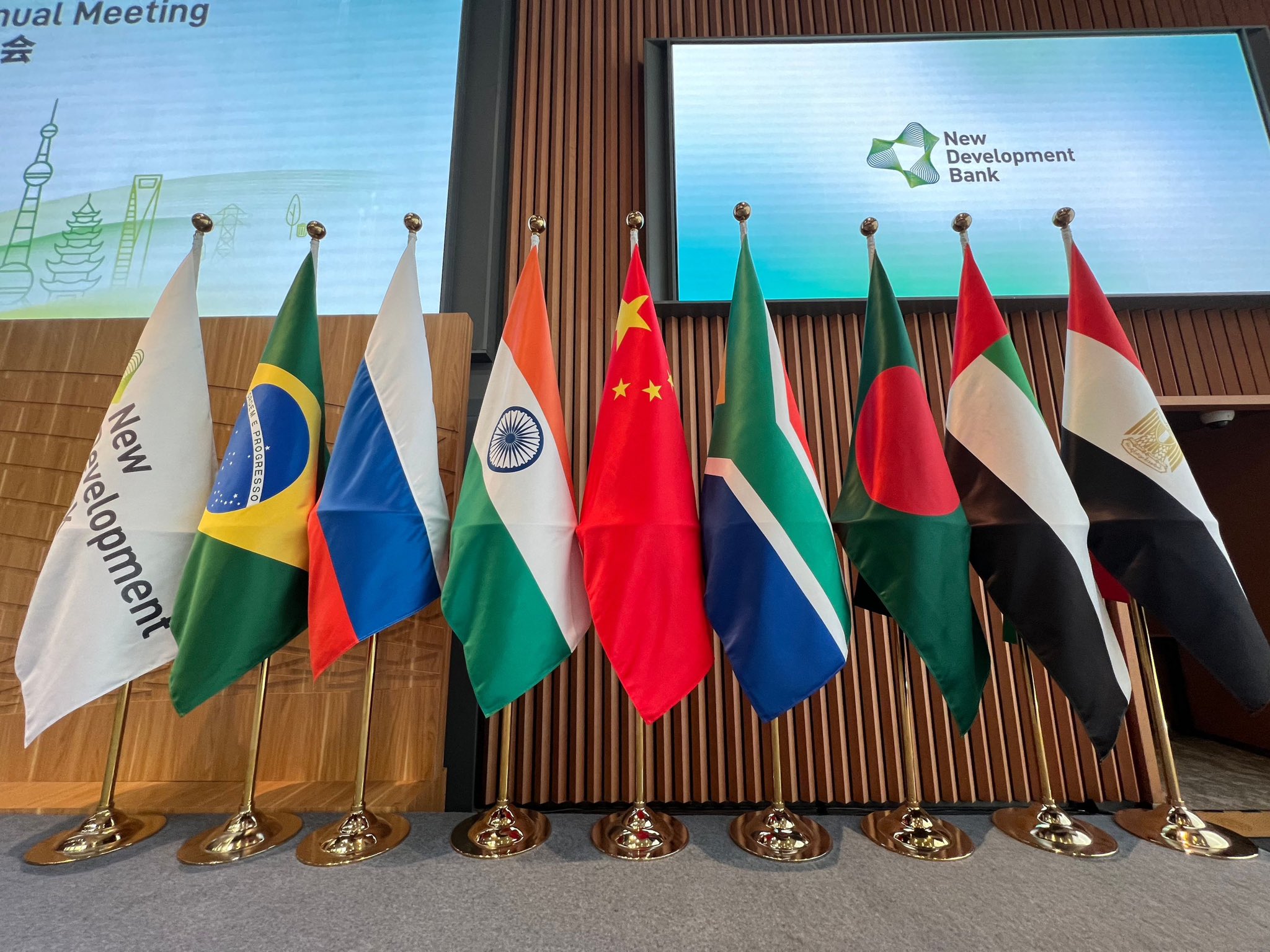South Africa has become the epicenter of diplomatic discussions as a meeting of foreign ministers from the BRICS countries commenced today. This gathering, consisting of Brazil, Russia, India, China, and South Africa, represents a significant milestone in fostering collaboration and shared development among emerging economies. The stage is set for a productive exchange of ideas, with the focus squarely on expanding the reach of the BRICS alliance and exploring the possibility of a new common currency.
The BRICS nations, accounting for nearly 42% of the global population and 23% of the world’s GDP, hold immense potential for shaping the future of the Global South. By coming together, these nations can leverage their collective strengths and promote inclusive growth, sustainable development, and a multipolar world order.
The meeting in South Africa serves as a testament to the group’s commitment to strengthening ties with other countries from the Global South. As a gesture of goodwill and inclusivity, foreign ministers from at least 15 other nations have been invited to a second BRICS meeting scheduled for tomorrow. This move demonstrates the BRICS’ aspiration to broaden their cooperation and extend the benefits of their collective endeavors beyond their immediate members.
One of the most exciting prospects of this meeting is the discussion surrounding expansion. BRICS has long been regarded as a potent force, but the addition of new members would amplify its impact even further. By welcoming new nations into the fold, the alliance can harness a wider range of expertise, resources, and perspectives. This expansion has the potential to reshape the global economic landscape and contribute to a more balanced and equitable world order.
In addition to expansion, the BRICS nations are exploring the possibility of creating a new common currency. Currently, these countries engage in significant trade and investment among themselves, which makes a shared currency an intriguing proposition. By reducing exchange rate fluctuations, transaction costs, and currency risks, a common currency could further deepen economic integration and promote stability within the BRICS alliance. However, such an undertaking would require extensive coordination, careful deliberation, and an understanding of the potential benefits and challenges associated with a shared monetary system.
Furthermore, the BRICS nations are expected to focus on key areas of mutual interest, such as infrastructure development, technology cooperation, energy security, and climate change. By pooling their resources and knowledge, these countries can accelerate progress towards sustainable development goals, foster innovation, and address pressing global challenges. The meeting provides an invaluable opportunity for ministers to exchange experiences, forge new partnerships, and strengthen existing ones.
As the BRICS meeting unfolds, it symbolises a renewed commitment to multilateralism and the shared aspirations of emerging economies. By fostering dialogue, cooperation, and mutual understanding, the BRICS nations are positioning themselves as influential actors on the global stage. Their efforts to expand and consider a common currency highlight their ambition to not only be drivers of economic growth but also to shape the evolving dynamics of the international financial system.
As the BRICS foreign ministers engage in these discussions, the world watches with anticipation. The decisions and outcomes of this meeting have the potential to impact not only the participating countries but also the broader global community. By embracing expansion and contemplating a common currency, the BRICS alliance is taking bold steps towards solidifying its position as a formidable force for change and progress.
The meeting of foreign ministers in South Africa is a testament to the BRICS’ commitment to inclusive and collaborative decision-making, as well as their dedication to strengthening ties among emerging economies. As the sun sets on the first day of discussions, the stage is set for a second meeting with invited ministers from other countries, showcasing the alliance’s resolve to widen its horizons and build a more inclusive future. The world eagerly awaits the outcomes of this historic gathering, as it holds the promise of a new era of cooperation, expanded partnerships, and the potential for a transformative common currency.
With the meeting of foreign ministers from the BRICS countries in full swing, anticipation fills the air regarding the outcomes and agreements that will shape the future trajectory of this influential alliance. The discussions held during this gathering will undoubtedly pave the way for strengthened economic ties, enhanced diplomatic relations, and a more interconnected Global South.
The invitation extended to foreign ministers from 15 other countries from the Global South for the second BRICS meeting underscores the alliance’s commitment to inclusivity and collaboration. By engaging with a diverse range of nations, the BRICS countries aim to foster a network of mutual support and collective action, transcending geographical boundaries and traditional divisions.
The prospect of expansion looms large on the agenda, offering an opportunity to amplify the impact of the BRICS alliance. The inclusion of new member states would not only diversify the alliance but also enrich it with fresh perspectives, experiences, and resources. This expansion would undoubtedly bolster the collective influence of the BRICS countries, allowing them to address global challenges with a united front and champion the interests of emerging economies on the international stage.
Equally noteworthy is the exploration of a new common currency among the BRICS nations. While the path to such an ambitious undertaking is complex and requires careful consideration, the potential benefits are tantalising. A shared currency would not only streamline trade and investment within the alliance but also foster greater economic stability, encourage cross-border collaboration, and provide a powerful symbol of unity among the member states. However, challenges such as harmonising monetary policies, addressing currency valuation concerns, and ensuring equal participation would need to be navigated with prudence and collective wisdom.
Beyond expansion and a common currency, the BRICS foreign ministers are deliberating on a range of crucial issues that affect their nations and the wider world. Infrastructure development, technology cooperation, energy security, and climate change are among the pressing topics on the agenda. By pooling their expertise, knowledge, and resources, the BRICS countries can spearhead innovative solutions, sustainable development initiatives, and greater resilience in the face of global challenges. Such collaborative efforts have the potential to not only uplift the member states but also inspire other nations to work collectively towards a more equitable and prosperous world.
As the meeting of the BRICS foreign ministers concludes, the significance of this gathering reverberates far beyond South Africa. It signifies a turning point in the trajectory of emerging economies, exemplifying their increasing agency, influence, and commitment to shaping the global order. The decisions made and agreements reached during this meeting will set the stage for future collaborations, initiatives, and a shared vision for the collective advancement of the BRICS countries and the Global South.
The world watches attentively as the BRICS alliance navigates the challenges and opportunities that lie before it. The outcomes of this meeting hold the potential to redefine economic cooperation, reshape financial systems, and lay the foundation for a more inclusive and multipolar world. The BRICS foreign ministers have embarked on a journey that will have lasting ramifications, and it is with great anticipation that we await the results of their deliberations—an outcome that promises a future of expanded partnerships, strengthened solidarity, and a shared commitment to a prosperous and sustainable future for all.














